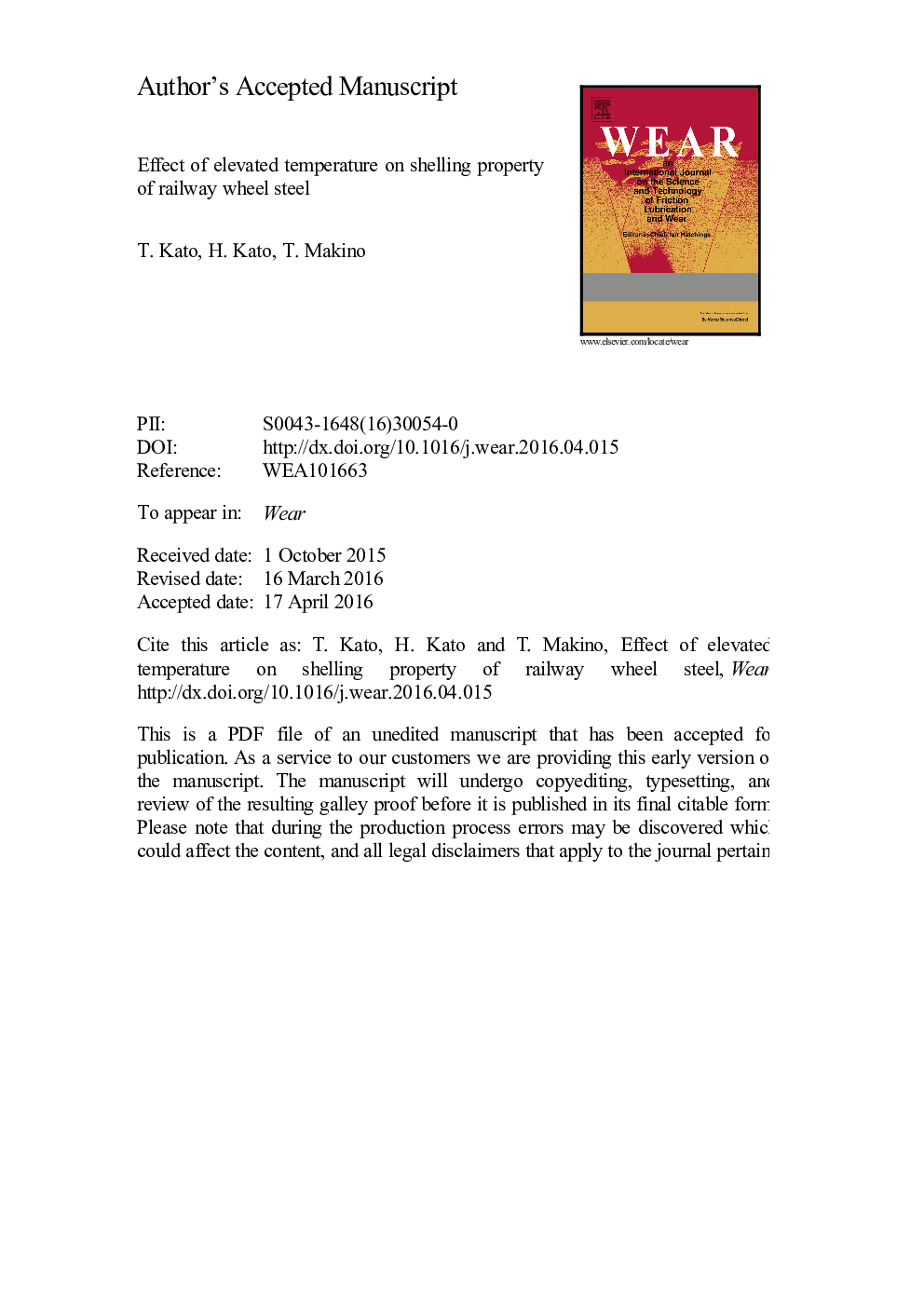| Article ID | Journal | Published Year | Pages | File Type |
|---|---|---|---|---|
| 4986863 | Wear | 2016 | 22 Pages |
Abstract
A type of tread damage called thermal mechanical shelling (TMS) is one of the main causes for heavy haul wheel removals in North America. Wheels are considered to have a shorter service life for TMS than other causes of removals as rolling contact fatigue (RCF) strength decreases because of elevated temperature from tread brakes. In this study, to evaluate the relationship between RCF life and elevated temperature, RCF tests and FE analyses were conducted. Twin disc type RCF tests with induction heating were applied to evaluate RCF life under thermal cycling simulating tread brakes. Test results show that RCF life was shorter with the higher maximum temperature and the longer holding time at elevated temperature. Softening of the material because of microstructure change was observed for the test specimens tested at the maximum 500 °C. Then, crack tip opening behaviour was evaluated by elasto-plastic FE analysis. FE analysis results showed that crack tip opening displacement (CTOD) was larger with the higher temperature and the longer holding time at elevated temperature. Moreover, CTOD increased with a decrease of the material strength. These results indicate that wheel life of TMS decreases by acceleration of fatigue crack propagation with elevated temperature.
Related Topics
Physical Sciences and Engineering
Chemical Engineering
Colloid and Surface Chemistry
Authors
T. Kato, H. Kato, T. Makino,
